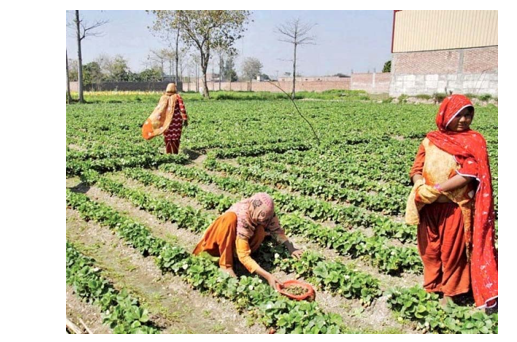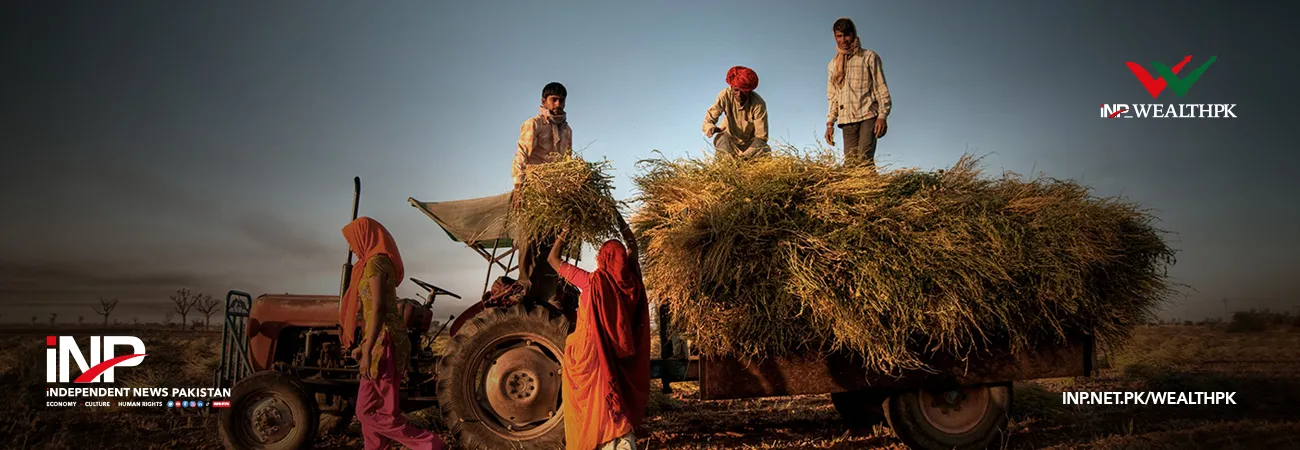INP-WealthPk
Arooj Zulfiqar
In the quest for sustainable development, Pakistan's rural communities are emerging as pivotal players. With the majority of the population residing in rural areas, empowering these communities is not just necessary but crucial for the country's overall progress, reports WealthPK.

"The rural communities in Pakistan face numerous challenges, including poverty, lack of education, inadequate healthcare, and limited access to modern agricultural techniques. Addressing these issues is fundamental to achieving sustainable development," said Irshad Khan Abbasi, Head of Innovation and Integration at the Pakistan Poverty Alleviation Fund, while talking to WealthPK. "Empowering the rural communities means improving their quality of life, which in turn boosts economic growth, reduces inequality, and ensures environmental sustainability," he said. Globally, ending hunger and malnutrition is a significant challenge, with 828 million people facing food insecurity in 2022. In Pakistan, 37% of the population and 13% of households are food insecure – a trend exacerbated by political instability, economic crisis, shocks, and natural disasters like floods. Pakistan ranks 11th worst globally on the Global Hunger Index, reflecting the severity of the issue. Various economic indicators contribute to food insecurity.
Top of Form "Pakistan's rural communities bear the brunt of food insecurity. Factors such as poverty, limited market access, volatile food prices, and climate-related challenges contribute to this complex problem," said Irshad. Senior Scientific Officer (SSO) at the National Agricultural Research Council (NARC) said, "Agriculture remains the backbone of Pakistan's economy and modernizing agricultural practices is essential to enhance productivity and ensure food security. Initiatives like introducing high-yield crop varieties, promoting sustainable farming practices, and providing training for farmers on modern techniques are already showing promising results." He said, "We have seen a significant increase in crop yields and income levels among the farmers who have adopted new technologies. However, there is still a long way to go. "Another primary challenge faced by the rural areas is limited market access. Remote communities often lack easy access to markets where they can purchase affordable and diverse food, leading to a reliance on locally available but limited options.
Additionally, climate change impacts, such as erratic weather patterns and natural disasters, disrupt agricultural production and livelihoods, affecting food availability and affordability." "Ensuring financial inclusion for rural communities can drive economic empowerment. Access to credit, savings accounts, and insurance products can help rural residents manage risks and invest in income-generating activities." He said the government's role in fostering rural development cannot be overstated. Policies that prioritize rural areas, allocate sufficient funds, and create supportive environments for local initiatives are essential. Community-driven development projects also play a crucial role. Therefore, it requires a concerted effort from the government, private sector, international partners, and the communities themselves. "We must focus on creating inclusive policies that leave no one behind. Rural empowerment is not just a developmental goal; it's a national imperative."
Credit: INP-WealthPk













